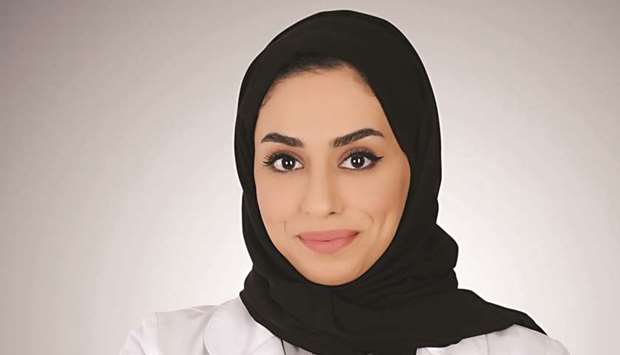The
Hamad Medical Corporation’s Hereditary Cancer and High-Risk Screening
Clinic has carried out genetic assessments on over 2,000 people,
resulting in decreased cancer risk, early detection, and targeted
treatment since the establishment of the clinic in 2013.
Dr Salha
Bujassoum, senior consultant, Haematology and Oncology, and director of
the Hereditary and High-risk Screening programme said in 2017, a total
of 800 individuals were referred to the clinic for evaluation associated
with their risk of hereditary cancer.
The genetic counselling and
testing service, which is part of the Hereditary and High-Risk Screening
Clinic at the National Centre for Cancer Care and Research (NCCCR),
provides a comprehensive genetic risk assessment for patients who are
concerned about their hereditary cancer risk because of a personal
and/or family history.
The multidisciplinary clinic aims to identify
patients at high risk of developing cancer due to young-onset
diagnosis, a strong family history, or a positive genetic test result.
Staff at the clinic provide targeted therapies, including prophylactic
surgery and chemoprevention and work with patients to incorporate
prevention strategies into their life that can help reduce their cancer
risk.
According to Dr Bujassoum, while cancer is a common disease,
some individuals are at a greater risk of developing it due to inherited
gene faults. She says inherited gene faults are responsible for around 5
to 10% of all cancers.
“Greater awareness of the role genetics can
play in causing certain cancers, as well as increased knowledge of the
screening tools available at HMC, has led to more patients requesting
genetic counselling and testing,” said Dr Bujassoum.
Genetic testing
examines a patient’s DNA for gene faults. According to Dr Bujassoum,
genetic testing for cancer is typically recommended for individuals who
are diagnosed with the disease at a very young age and for individuals
who have a strong family history of cancer, such as individuals who have
multiple cases of cancer in their family.
Currently, genetic
testing is available to screen for gene faults that increase an
individual’s risk of breast, bowel, ovarian, womb, and prostate cancers.
Dr Bujassoum said these tests can only be ordered by a board-certified
genetic counsellor.
“Part of our job involves helping patients make
appropriate and informed choices to reduce their risk of developing
cancer, or in the case of patients who are in the early stages of the
disease’s progression, to reduce the risk of a recurrence, or to help
control the disease in the case of advanced progression.”
Dr Reem
Jawad al-Sulaiman, an American Board Certified Genetic Counsellor at
NCCCR, said the genetic counselling and testing service uses a
multidisciplinary and collaborative approach. A team of specialists
works together to help patients understand their cancer risk as part of a
comprehensive cancer risk assessment.

Dr Reem Jawad al-Sulaiman
